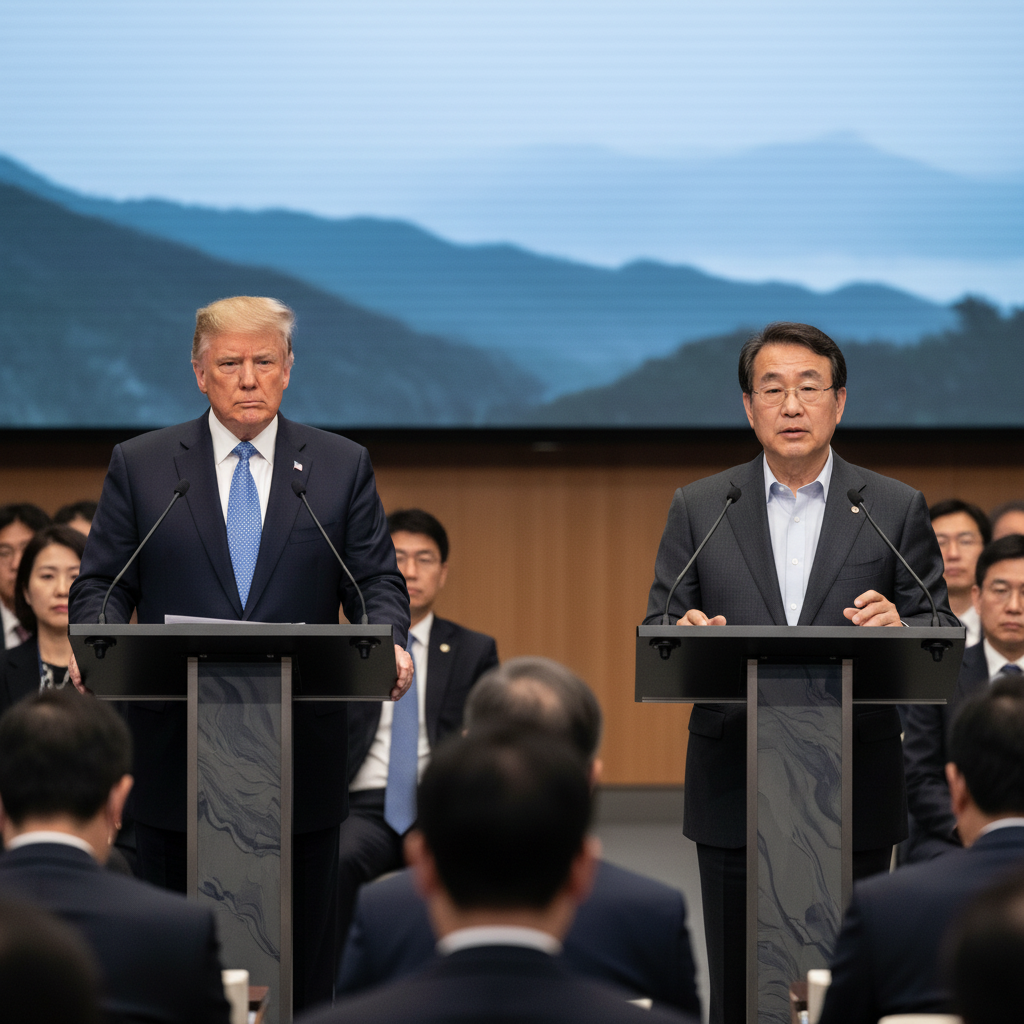Japan Through American Eyes: What Trump-Era Diplomacy Reveals

Japan Through American Eyes, and the Diplomatic Implications of Trump's Policies
Donald Trump's 'MAGA' (Make America Great Again) policy has once again underscored the importance of diplomacy and geopolitics. In this context, past experiences with Japan in the United States offer significant insights into understanding the current international landscape. Especially with President Lee Jae-myung's meeting with US President Donald Trump scheduled for October 29, 2025, examining the US diplomatic terrain becomes even more crucial.
In November 2017, Bahng Young-eun, CEO of Humax Shipping & Aviation, then working at the Korea Development Bank's New York branch, was invited to SMBC (Sumitomo Mitsui Banking Corporation)'s '100th Anniversary of US Entry' event. This event was not merely a celebration of a Japanese financial institution's history. It was a symbolic demonstration of how deeply rooted the Japanese financial community is in American society. The event was attended by a large number of figures from American political and economic circles, underscoring SMBC's influence. Participating in the event provided a firsthand experience of the robust network and influence that Japan has built in American society. This extended beyond mere economic aspects to encompass the cultural and social spheres, highlighting the extent of Japan's impact on American society. Particularly under President Trump's 'MAGA' policy, this Japanese presence could act as a significant variable in US foreign policy strategy, as the influence Japan has cultivated within the US can directly and indirectly affect the American foreign policy decision-making process.
In January 2019, the outgoing branch manager of Mizuho Bank's New York branch visited CEO Bahng's office with his successor to introduce him. This handover process went beyond simple operational continuity, illustrating how closely Japanese financial institutions cooperate within the US. In New York, the center of international finance, the way major Japanese banks shared their networks and collaborated was striking. This collaborative relationship likely played a vital role in enabling Japanese financial institutions to grow steadily and expand their influence in the US market. Furthermore, it not only strengthened Japan's position in the American financial market, but also likely influenced the expansion of Japan's influence throughout American society.
In the fall of 2019, I had dinner with a Japanese Ministry of Finance official at a Korean restaurant in New York. During the meal, he provided an in-depth analysis of the Japanese government's economic policies and the American economic situation. He expressed particular concern about the strengthening of US protectionism and its impact on the Japanese economy. That conversation exemplified how sensitively the Japanese government was reacting to changes in US economic policy. Japan was preparing various scenarios to respond to changes in American economic policy and seeking strategies to minimize the impact of those changes on the Japanese economy. These efforts were aimed at maintaining a stable economic relationship with the US and protecting Japan's economic interests. President Trump's 'MAGA' policy presented new challenges to these Japanese efforts, and Japan likely felt the need to further refine its response strategies. This is an area that could also indirectly affect US-ROK relations.
Song Min-soon, former Minister of Foreign Affairs, published his book 'Good Fences Make Good Neighbors' on October 28, 2025, serving as a reminder of the importance of diplomacy. In particular, President Trump's 'MAGA' policy has brought about significant changes in US foreign policy strategy, which presents new challenges for Korean diplomacy. The meeting between President Lee Jae-myung and US President Donald Trump on October 29, 2025, will be an important opportunity to seek solutions to these challenges. Past experiences with Japan in the US can serve as useful references for understanding the current international landscape and setting the direction of Korean diplomacy. In particular, Japan's response strategy to changes in US foreign policy offers significant lessons for Korea as well. Korea must establish a strategy to protect its interests and play a leading role in the international community based on a thorough analysis of changes in US policy. This will contribute not only to strengthening Korea's position in economic terms, but also in various fields such as security and culture.
